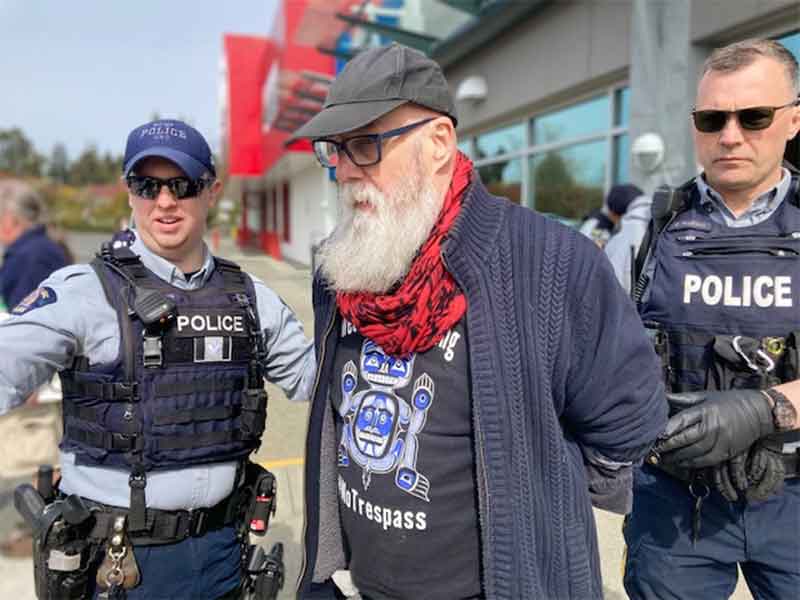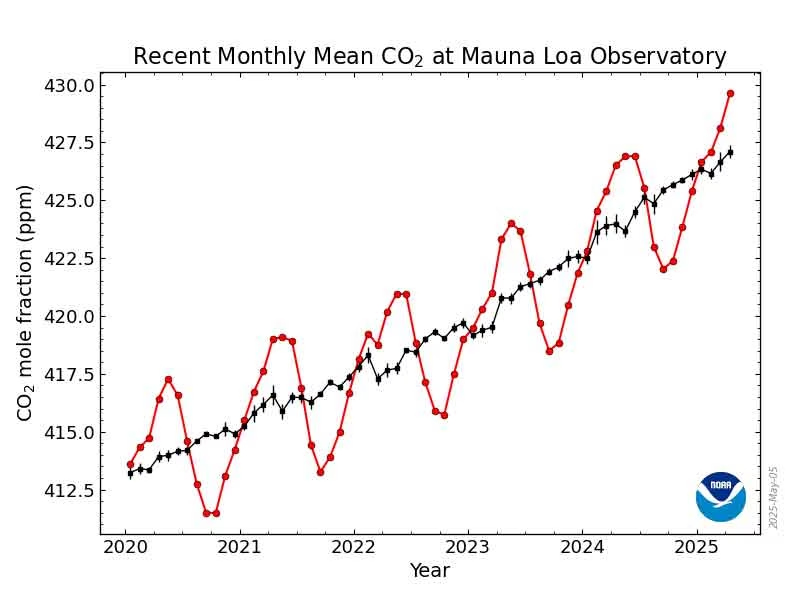
“Where should we go after the last frontiers? Where should the birds fly after the last sky?”
— Mahmoud Darwish, Palestinian poet
We’re in the beginning of the end times. Who’s to blame? Us. The ultra-consumptive. We can’t say we didn’t know; we can only say we didn’t want to know. We must bear this guilt until our carbon-decadent society collapses—unless we rise up now against necropolitics.
Achille Mbembe’s concept of necropolitics demands our attention. It refers to the use of social and political power to dictate who may live and who must die, creating “deathworlds” where vast populations are subjected to conditions that render them the “living dead.” This is evident in the context of the climate poly-crisis, where marginalized communities globally, from Palestine to Turtle Island, suffer the brunt of environmental degradation and death. An estimated 10-15 million people die annually from climate-related causes and ecological crime.
The death train in Gaza is only the first ‘livestreamed’ climate war train that has left the station and is rapidly moving to the existential cliff. Like the wretched deathcamp survivors remaining in occupied Gaza, many defenders of the planet and Indigenous sovereignty are crushed under it.
Mbembe’s analysis encompasses more than the political right to kill; it includes the right to expose others to imminent mortal danger and death. Systemic political negligence and ecocidal harm are evident in environmental injustices faced by Indigenous peoples and low-income communities worldwide. These groups endure the cumulative impacts of landback obstructionism, lethal pollution, unwanted resource extraction, increased disease transmissibility, and climate breakdown, revealing the necropolitical dimensions of nation state socio-environmental policy.
The catastrophic start of the Canadian wildfire season, like others in California and elsewhere, has further exacerbated the survivability of numerous communities. In recent years, Canada has experienced unprecedented wildfire activity, with the 2023 season marking one of the worst in history. These fires, fueled by extreme heatwaves and prolonged drought conditions, have ravaged vast swathes of forest, destroyed homes, and forced mass evacuations. The sheer scale and intensity of these wildfires have overwhelmed firefighting resources, making it increasingly difficult to protect vulnerable communities.
In 2023, over 17 million hectares burned with an estimated wildfire carbon emission of approximately 410 million tonnes of CO2. Wildfire emissions are not represented in Canada’s carbon budget, burying any hope of meeting carbon reduction pledges without immediate cessation of all new fossil fuel, animal agriculture, and forestry sectoral emissions. The economic cost of these natural disasters is staggering, often reaching billions of dollars in damage, and the process of recovery is long and arduous.
The impact of these climate-induced disasters is not felt equally. The number of forcibly displaced people worldwide reached over 110 million in 2023. The health implications of extreme weather events are severe. Smoke from wildfires causes respiratory problems, while stress exacerbates mental health issues. Floodwaters carry contaminants, leading to waterborne diseases, and loss of shelter exposes individuals to the elements. Evacuation is not always viable, leaving many trapped in dangerous situations with little support.
As these climate events become more frequent and intense, the gap between the uber-rich and the marginalized widens. The wealthy can afford to rebuild or relocate, whereas the impoverished and unhoused are left to fend for themselves. This disparity highlights the urgent need for a more equitable approach to climate adaptation and disaster response.
Recognizing Global Racial and Environmental Injustice
Racism is a core driver of necropolitics. Racialized people’s lives are systematically devalued, making them more vulnerable to environmental harms. Indigenous communities living near industrial projects face higher rates of health issues due to contamination.
Globally. from the occupied territories of Palestine to the water crises faced by Indigenous communities across Turtle Island, the necropolitical dimensions of climate change are clear. These injustices highlight the need for a global, intersectional ‘disruptive’ approach to climate activism.
Addressing these systemic injustices also requires bold and innovative solutions. One such proposal is the call for a Fossil Fuel Non-Proliferation Treaty, modeled after nuclear non-proliferation treaties, aiming to halt fossil fuel extraction and promote a just transition to renewable energy sources.
Additionally, the United Nations must democratize the ‘Necessity Defence’ to end the criminalization of climate activists. Recognizing the Necessity Defence would allow activists to argue that their actions, though technically illegal, were necessary to prevent greater harm. This change would provide critical legal protection for those on the front lines of climate resistance.
Furthermore, adopting ‘ecocide’ as an international crime in the Rome Statute would hold perpetrators of large-scale environmental destruction accountable. By recognizing ecocide as a crime against humanity, the international community can take a firm stance against environmental injustices.
Incorporating these measures into global climate policy frameworks would significantly advance the fight against racial and environmental injustice.
The Role of the Climate Movement
The climate justice movement must confront global inequities head-on. It is grossly insufficient to focus solely on domestic issues. The movement must advocate for policies addressing systemic inequalities and hold irresponsible government and corporate actors accountable for past damage and loss.
It means supporting Indigenous land defenders and settler allies, and demanding environmental protections prioritize marginalized communities’ health and well-being. It means pushing for an immediate end to all new fossil fuel development and deforestation. It means opposing white supremacy and its racial, economic, and gender violence. It means an end to necro-capitalism. It means ‘defending the defenders.’
The climate movement has the potential to be a powerful force for change. Embracing a globally-intersectional, fossil fuel and deforestation abolition-oriented approach is crucial. This involves amplifying the voices of those most affected by climate necropolitics and holding governments and corporations accountable for perpetuating environmental racism and injustice.
To be effective against climate necropolitics, national climate movements must collaborate with global climate resistance groups like Just Stop Oil, Extinction Rebellion, Scientist Rebellion, and Last Generation. These alliances are crucial to counteract the spread of right-wing necro-fascism and neo-colonialism.
Achille Mbembe’s concept of necropolitics challenges us to think critically about who is left behind to die and why. Confronting the climate crisis also means addressing the neo-colonialist power and oppression systems that create and exacerbate death governance. By recognizing and acting against climate necropolitics, a newly constituted climate revolutionary movement can work towards a future where everyone has the right to live.
Subscribe to Our Newsletter
Get the latest CounterCurrents updates delivered straight to your inbox.
As we rush toward the point of systemic climate irremediability, the time for bold insurgency action is now. All those climate-informed must rise to this urgent life-and-death challenge, collaborating with global allies to fight for the planet, its people, animals, and life support systems.
Radicalism in defence of humanity’s survival is no vice; moderation in the pursuit of worldwide emergency-level justice is no virtue. Today, there are no longer any planet bystanders, only betrayers. Only together can we stop the spread of necro-fascism and democratize survival and freedom for all.
Howard Breen is a co-founder of Extinction Rebellion Vancouver Island and is awaiting his climate necessity defence trial sentencing in November in Nanaimo, B.C. with his co-defendant Melanie Murray. The Crown is seeking a six-month incarceration term for multiple XR disruptions.














































